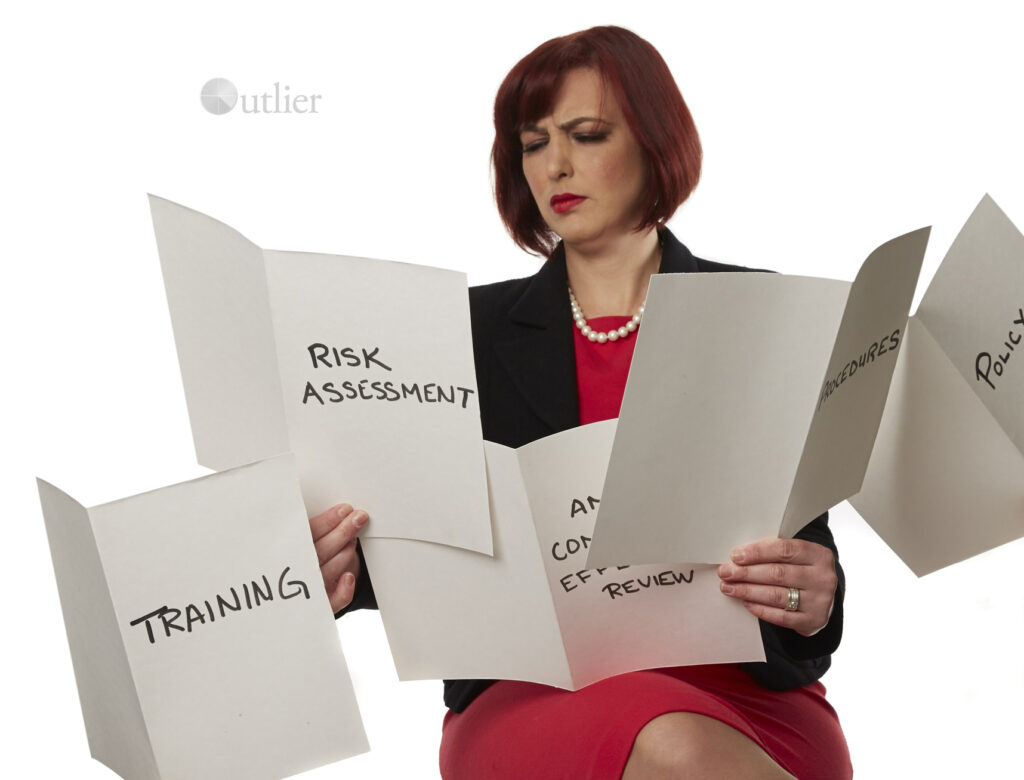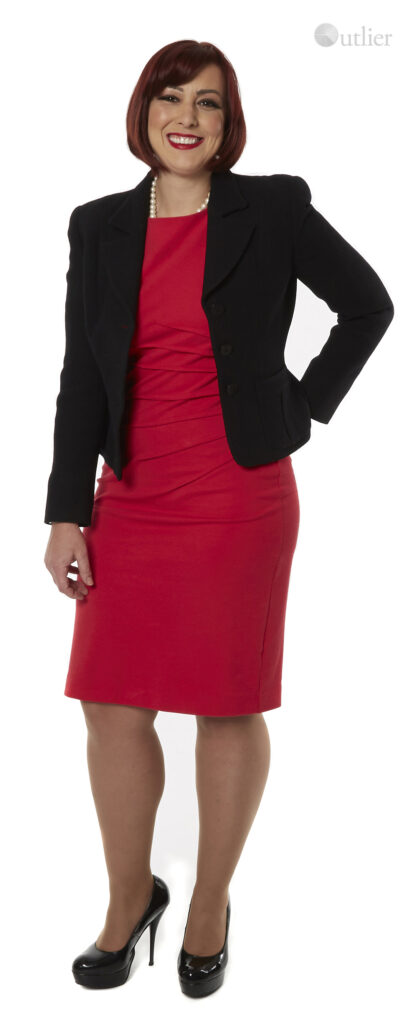DIACC is hosting a series of spotlights showcasing our amazing female DIACC members in the digital identity space, noting the importance of diversity. These spotlights will be regularly socialized through DIACC’s LinkedIn and Twitter channels as well as our monthly member newsletters.
If you’re a DIACC member and would like us to feature your spotlight, contact us today to learn more!
How long have you worked in your sector, and in your current position?
I’ve been the CEO of Outlier since founding the company in 2013.
What has your career journey looked like? Have you always worked in the private sector?
I’ve worked as an employee for very large companies, including banks, investment firms and insurers as well as for consulting firms, but always in the private sector. It’s a running joke on our team that I might “retire” into a public policy or academic role one day.


When you were twenty years old, what was your dream job, and why?
When I was 20 years old my dream job was probably to be a world-famous DJ…little did I know that I was about to fall into a compliance role and fall in love with unravelling the puzzle that is Canadian regulation!
As a female leader, what has been the most significant barrier in your career?
I think that it took me a long time to truly be authentic in my work roles because authenticity means vulnerability. On my last day as a banker, one of my colleagues and I shared a cab to the airport and he told me that although I was very smart and well-liked, I was always holding myself back and this lack of authenticity would hurt me in the long run. I don’t think that I really understood what he meant until I founded Outlier. At that point, I had the freedom to create the type of environment that I wanted to work in, and to keep building on that vision. It’s something that I’m always working on.
How do you balance work and life responsibilities?
Anything that I would say here would be disingenuous. I don’t really have a “balance” in the traditional sense, and I’m ok with that. Don’t get me wrong, I cook and workout and do self-care things, but I’ve given up on the idea that there needs to be some sort of clean lines between my work and home lives. My colleagues are some of my best friends. It helps that I love what I do and get really excited about the intellectual challenges. If I didn’t have friends in the industry, who would I have philosophical conversations about ideal policy outcomes with?
How can more women be encouraged to pursue careers in the tech space?
I think it starts early. I’ve bought a few Cubettos (tactile coding toys) for bright young girls in my life. I try to take the time to talk to women, especially those starting out in their careers and to be honest about my experiences. I want my nieces (and my nephews) to choose a career that they’re passionate about. Gender shouldn’t be a barrier to that.
I’m also trying to practice radical honesty with my male colleagues because it helps to build awareness. For instance, a male CEO that unreservedly admire told me that he took a nap on a bench in a quiet spot in a Toronto park between meetings, and I told him how envious I felt that he could do that without really worrying about safety. It led to a really great discussion about some of the hidden differences that exist for men and women in business travel.

What are some strategies you have learned to help women achieve a more prominent role in their organizations?
One of the funny things that I’ve noticed running a compliance and tech meetup is that 100% of the people that reach out to me to ask to speak are white men. It’s not that the foremost experts in these fields are all white men. It’s not that the best or most knowledgeable speakers are all white men. It’s that white men have been trained to be very comfortable approaching someone that they’ve never met and asking for stage time. I try to make sure that I’m reaching outside of my usual network and beyond those that are volunteering. I try to keep track of people that I’ve spoken to that have really interesting insights that I want to see on stage, on committees, and in leadership roles. I try not to shy away from the conversations about what we can do better – because we can always do better.
The other thing that I’ve become very cognizant of after working with someone that abused alcohol, power, and people is my responsibility as a leader to ensure the safety of those around me. We’re in a new era where creeps that try to take advantage of their position are starting to be held to account, but there is still a lot of bad behavior going unchecked. When a known offender is at an event, I will warn organizers and suggest measures to ensure the safety of participants. This is uncomfortable but better than the alternative.
What will be the biggest challenge for the generation of women behind you?
I think that the challenge is always the same – building the best possible world with the tools at our disposal. Someone once told my mom that she would never have a VP title (despite actually doing the VP job for 6 months) because she was a woman. He said it to her face, and there was no recourse. By the time I was the same age, it would be career suicide for someone to say that to my face. By the time my nieces are my age, I’d love for us to be so evolved that no one would even think it.
What advice would you give to young women entering the field?
Sometimes being the only person like you in the room is power. When there are 8 men talking in the same way, I can embrace the fact that my voice is different and able to cut through the din…and when this is the case, it’s also likely that everyone “like you” is going to be judged based on what you say. It’s a lot of responsibility in a sense, and a lot of work but the results are worth the effort. You’ve got this.
Amber D. Scott is the Founder, CEO & Chief AML Ninja at Outlier Solutions Inc.